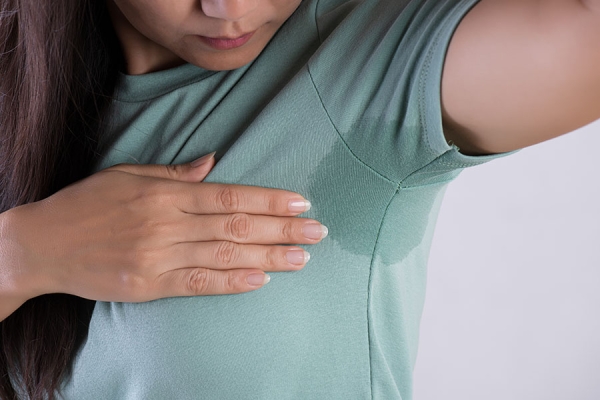Exactly How to Select the most effective Extreme Sweating Treatment for Your Requirements
Too much sweating, or hyperhidrosis, can dramatically affect one's quality of life, demanding a thoughtful method to therapy. Engaging with a medical care expert is important, yet many people overlook crucial elements that can influence their therapy plan.
Understanding Extreme Sweating
Too much sweating, medically recognized as hyperhidrosis, is a condition that influences numerous individuals, commonly resulting in substantial physical and emotional pain. This condition can be local, affecting certain areas such as the hands, feet, underarms, or face, or it can be generalised, influencing the entire body. Hyperhidrosis is not simply an annoyance; it can disrupt daily activities, social communications, and general top quality of life.
The precise source of hyperhidrosis remains mainly vague, but it is believed to include overactivity of the considerate nerves, leading to extreme excitement of gland. Elements adding to this problem might include genetics, hormonal modifications, specific clinical conditions, and medications. It is important to distinguish between main hyperhidrosis, which typically begins in childhood or adolescence without an underlying cause, and additional hyperhidrosis, which can be connected to numerous wellness issues such as thyroid disorders or infections.
Comprehending the nuances of hyperhidrosis is necessary for people seeking suitable administration methods. Identifying the influence of this problem on individual and specialist life can aid foster an encouraging environment for those affected, enhancing their well-being and self-esteem.
Common Therapy Alternatives
When looking for alleviation from hyperhidrosis, different treatment choices are offered, tailored to the severity and specific qualities of the condition. The first-line treatment usually includes using non-prescription or prescription antiperspirants having light weight aluminum chloride. These representatives work by blocking sweat glands and can be effective for moderate to moderate instances.
For people with more serious hyperhidrosis, oral drugs such as anticholinergics might be prescribed to decrease sweating by preventing nerve signals. Additionally, iontophoresis is a non-invasive procedure that utilizes electric currents to temporarily obstruct sweat production in targeted areas, specifically the hands and feet.
Botulinum contaminant shots are one more feasible alternative. This treatment involves injecting percentages of botulinum toxic substance right into the impacted areas, successfully blocking the nerves that stimulate sweating. The outcomes commonly last for numerous months and can dramatically enhance quality of life.
For consistent hyperhidrosis less competent to these treatments, even more invasive procedures such as microwave therapy or medical choices like sympathectomy might be considered. Each treatment has its own advantages and possible adverse effects, making it important to speak with a health care professional to figure out one of the most proper strategy.

Evaluating Your Way Of Living
Examining your way of living is an essential step in managing hyperhidrosis properly. Comprehending just how your daily practices and ecological aspects contribute to too much sweating can direct you towards the most appropriate therapy alternatives.
Next, consider your work and social atmospheres. If your task entails high-pressure circumstances or needs long term exposure to heat, applying approaches to reduce sweating may be necessary. Social settings can influence your comfort level; determining circumstances that cause anxiety or embarrassment can assist you take positive actions - hyperhidrosis treatment.

Consulting a Health Care Professional
Consulting a health care specialist is a crucial action in attending to hyperhidrosis successfully. A certified clinical expert can offer a comprehensive examination of your condition, aiding to establish the underlying reasons for too much sweating. This preliminary analysis is crucial, as hyperhidrosis can be a signs and symptom of various clinical concerns, such as hormonal inequalities or neurological problems.
During your consultation, be prepared to discuss your signs in detail, including Check Out Your URL the regularity, intensity, and particular areas influenced by sweating. This information will certainly help your doctor in formulating a proper therapy strategy customized to your specific demands. hyperhidrosis treatment. They might recommend a selection of therapy options ranging from topical antiperspirants and dental medications to advanced treatments like Botox shots or iontophoresis
Moreover, medical care specialists can lead you in recognizing the potential adverse effects and benefits of each therapy option. This joint method not only empowers you to make informed decisions yet also makes sure that you are going after the most efficient approaches for managing your hyperhidrosis. Inevitably, involving with a healthcare expert is important for attaining optimal outcomes and improving your lifestyle.
Monitoring Treatment Effectiveness

To examine therapy effectiveness, patients ought to keep a sign journal, noting the regularity, duration, and seriousness of sweating episodes. This documents can aid recognize Find Out More patterns and activates, giving useful find out this here understandings throughout follow-up appointments. Furthermore, patients can make use of tools such as the Hyperhidrosis Condition Seriousness Range (HDSS) to evaluate their symptoms and track changes with time.
It is crucial to maintain open interaction with the healthcare service provider. Regular appointments need to be scheduled to talk about any type of modifications, side impacts, or emerging concerns. If the initial treatment proves ineffective, exploring different therapies or adjusting dosages may be required.
Inevitably, effective surveillance empowers patients to take an energetic duty in their therapy trip, advertising far better results and boosted lifestyle. Through persistent analysis and partnership with medical care experts, people with hyperhidrosis can locate the most ideal strategies to handle their condition effectively.
Verdict
In summary, efficiently managing extreme sweating requires an extensive approach that thinks about specific symptoms, therapy options, and way of living factors. A tailored therapy plan is vital for addressing this condition effectively.